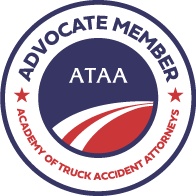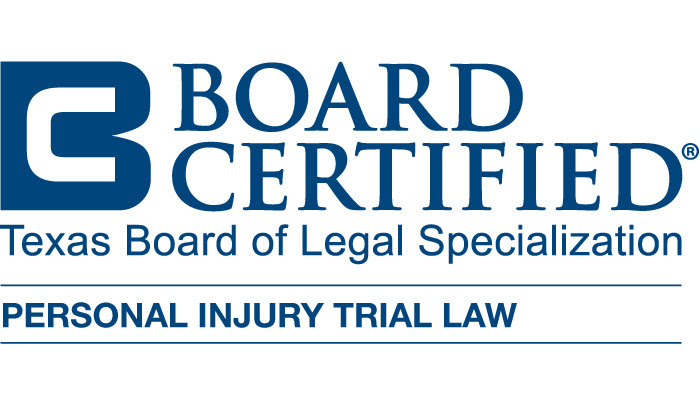Welcome to the official blog of Willumsen Law Firm, P.C., where we’re committed to empowering our community with knowledge about personal injury law. Today, we’re delving into a topic that often concerns individuals involved in car accidents: the concept of a “totaled” vehicle.
Understanding what it means when your car is deemed totaled is crucial for navigating the aftermath of an accident, both legally and financially.
In this comprehensive guide, we’ll explain total loss in car accidents. From defining what constitutes a totaled vehicle to exploring the implications for insurance claims and potential legal recourse, we’ll equip you with the knowledge you need to protect your rights and interests in the event of a car wreck.
What Does Totaled Mean?
When a vehicle is deemed totaled after an accident, it means that the cost of repairing the damage exceeds a certain percentage of the car’s actual cash value (ACV) or its pre-accident value. This percentage threshold varies depending on state regulations and insurance policies but typically ranges from 60% to 100% of the vehicle’s ACV.
Insurance companies determine a vehicle’s ACV based on factors such as its age, mileage, condition, and market value. If the cost of repairs exceeds the predetermined threshold, the insurer may opt to declare the vehicle a total loss rather than proceeding with repairs.
A totaled vehicle can become a salvage vehicle if rebuilt. Salvage motor vehicles are those that have been damaged to the extent that they are deemed a total loss by insurance companies or have been declared salvage by the Texas Department of Motor Vehicles (TxDMV). These vehicles may have undergone significant repairs or restoration efforts but retain a salvage title, indicating their previous status as a total loss.
Implications for Vehicle Owners
When your vehicle is declared totaled, it leads to a series of outcomes. Firstly, your insurance provider will likely offer a settlement reflecting the car’s actual cash value (ACV) at the accident time, instead of paying for repairs. This amount, after deducting any deductibles, compensates for your vehicle’s loss. You generally give up ownership of the vehicle to the insurance company once you accept this settlement, though sometimes you can buy back the salvaged car at a lower price, depending on state laws and the insurer’s rules. The car often gets a salvage title, showing it was heavily damaged and fixing it is not cost-effective, which can affect its future resale value and insurance costs. With the settlement money, you can decide whether to repair or replace the vehicle, considering the financial implications of each. Additionally, extra coverages like gap insurance or new car replacement can cover the difference between the settlement and what you owe on the car or help you get a new vehicle if the totaled one was new. Understanding these aspects is crucial for making informed decisions after your car is totaled.
Does Being Totaled Impact a Personal Injury Lawsuit?
When a vehicle is totaled after an accident, indicating it has sustained damage beyond its worth, this status can influence a personal injury lawsuit in several ways. The vehicle’s transition to salvage or scrap value lowers its market value, potentially affecting the compensation for property damage in the lawsuit. The compensation sought for economic damages, like vehicle repair or replacement costs, would be based on the car’s actual cash value pre-accident, which is often less than repair costs. It’s critical to assess the fairness of any total loss settlement offered by the at-fault party’s insurer. However, a totaled vehicle status does not affect claims for non-economic damages, such as pain and suffering, emotional distress, and loss of enjoyment of life, which remain crucial to the lawsuit’s overall compensation.
My focus is to give a voice to families who have suffered a wrongful death or a serious injury to a family member caused by an 18-Wheeler, commercial truck, or a drunk driver. Contact us today, we can help you.Helping Injury Victims for Over 25 Years
Brining a Car Accident Lawsuit
If you’ve been hurt in a car accident due to the negligence of others, you may have the grounds to file a personal injury lawsuit and attempt to make right what went wrong. There are four essential elements required to bring a successful personal injury lawsuit following a car accident. Understanding these elements is crucial for protecting your rights and pursuing rightful compensation for your injuries and losses.
Duty of Care
The first element in a personal injury lawsuit is establishing that the defendant owed you a duty of care. In the context of a car accident, all drivers have a legal duty to operate their vehicles safely and adhere to traffic laws to prevent harm to others on the road.
Breach of Duty
Once duty of care is established, the next step is demonstrating that the defendant breached that duty through negligent or reckless actions. This could include behaviors such as speeding, distracted driving, failure to yield, or driving under the influence of alcohol or drugs.
Causation
Causation is a critical element in proving liability in a personal injury case. You must establish that the defendant’s breach of duty directly caused your injuries and losses. This requires demonstrating that the accident would not have occurred “but for” the defendant’s negligent actions.
Damages
In order to pursue compensation in a personal injury lawsuit, you must have suffered actual damages as a result of the accident. Damages can include medical expenses, lost wages, property damage, pain and suffering, and emotional distress. Documenting these damages thoroughly is essential for building a strong case.
Keys to Success
Gathering evidence is key to substantiating your claims in a personal injury lawsuit. This may include police reports, witness statements, photographs of the accident scene and vehicle damage, medical records, and any other documentation relevant to your case. The more evidence you have to support your claims, the stronger your case will be.
In Texas, there is a statute of limitations that sets a deadline for filing a personal injury lawsuit. Generally, you have two years from the date of the accident to file a lawsuit. Failing to file within this timeframe could result in your case being dismissed, so it’s essential to take prompt action and seek legal representation as soon as possible following a car accident.
Navigating the legal process following a car accident can be overwhelming, especially while dealing with injuries and recovery. That’s why it’s crucial to seek guidance from an experienced personal injury attorney — like those at Willumsen Law Firm — who can advocate for your rights and handle the complexities of your case on your behalf. With skilled legal representation, you can focus on healing while your attorney works to secure the compensation you deserve.
There are various types of damages available to accident victims and how they contribute to just compensation for your injuries and losses.
Related Videos
Choosing a Personal Injury Attorney
Types of Compensation in a Truck Accident Claim
Economic Damages
Economic damages in the context of a car accident refer to the tangible financial losses incurred. These are generally straightforward to calculate and include medical expenses like emergency care, surgeries, hospital stays, doctor’s visits, prescription medications, rehabilitation, and therapy. Lost wages are also part of economic damages, compensating for income loss due to inability to work or the need for recovery time, covering wages, salary, bonuses, and other employment benefits. Property damage encompasses the costs for repairing or replacing the vehicle and any other property damaged during the accident, including personal belongings or roadside structures, with adjustments if the vehicle is totaled. Additionally, in the event of severe or long-term injuries, compensation might extend to future expenses, covering ongoing medical treatments, therapy, and potential loss of earning capacity.
Non-Economic Damages
Non-economic damages cover the intangible, yet significant losses incurred from a car accident, encompassing pain and suffering, loss of enjoyment of life, and loss of consortium. Pain and suffering refer to the compensation for the physical discomfort and emotional distress, including chronic pain and mental health effects like anxiety and depression, caused by the accident. The loss of enjoyment of life pertains to compensation for the inability to engage in previously enjoyed activities or a reduced quality of life due to the injuries. Additionally, loss of consortium addresses the compensation for family members or loved ones affected by the severe injuries that impair relationships, companionship, and support.
Punitive Damages
In rare cases involving egregious negligence, recklessness, or intentional misconduct by the at-fault party, punitive damages may be awarded. These damages are intended to punish the wrongdoer and deter similar conduct in the future, rather than compensate the victim for specific losses.
Getting the Settlement You Deserve
Navigating the complexities of a car accident personal injury lawsuit and pursuing rightful compensation for your damages can be challenging on your own — and all the more so if your insurance company has declared your car totaled.
That’s why it’s crucial to seek guidance from an experienced personal injury attorney who can advocate for your rights and fight for the full and fair compensation you deserve.
If you’ve been injured in a car accident due to another party’s negligence, don’t hesitate to reach out to Willumsen Law Firm for a consultation. Our team is here to provide compassionate support, strategic legal representation, and help you secure the compensation needed to rebuild your life and move forward from the accident.
Let us be on your side — totally.





